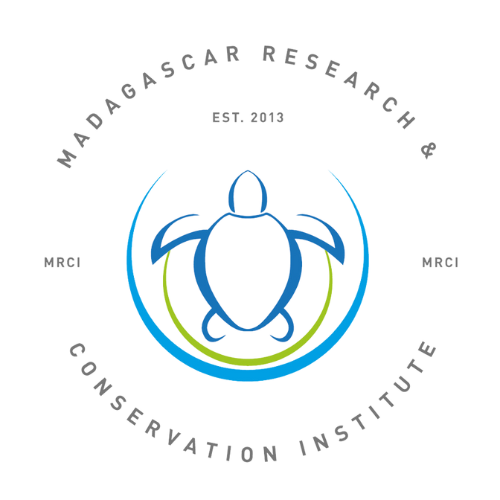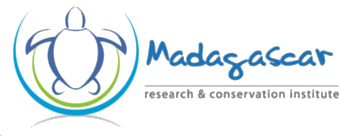Sea Turtle Monitoring Program
Established to identify and develop Safe Turtle Breeding Zones in North Western Madagascar.
MRCI has made a significant impact in collaboration with the local community by establishing a “Safe Turtle Nesting Zone” on Nosy Komba Island. To ensure the well-being of turtles and their eggs, we’ve deployed security personnel who maintain 24-hour surveillance of this nesting area.
Volunteers at MRCI play a crucial role in identifying nesting sites by exploring remote beaches on the islands surrounding Nosy Be. This extraordinary program not only allows volunteers to witness these magnificent creatures up close but also contributes to the long-term health and survival of these species.
Our Sea Turtle Monitoring Program operates during the nesting season from October to March each year when turtles come ashore to lay their eggs. The primary focus of this program is to gather and document data related to species, nesting, and size, which aids in estimating population dynamics and nesting patterns in North Western Madagascar.
Currently, remote beaches are facing a grave threat, with large numbers of turtle eggs being plundered, and hatchlings and fully reproductive turtles being harvested for the souvenir trade. Given the already low natural survival rate of turtle hatchlings, this activity poses a severe risk to population numbers. Implementing protective measures for these breeding sites is paramount to safeguarding these species in the region. Our volunteers, who play an invaluable role in helping us achieve our goals, collaborate closely to protect endangered sea turtle species in their natural habitat and raise public awareness by working with local communities and national authorities.

Our primary objectives include:
- Mapping and identifying nesting beaches.
- Assessing species diversity and numbers.
- Building relationships with local communities to involve them in our conservation efforts.
- Monitoring and cleaning beaches from plastic waste and other harmful debris.
Volunteers undergo training in species identification, equipment usage, and data collection protocols to prepare them for hands-on fieldwork.
We monitor two turtle species: the critically endangered Hawksbill Sea Turtle and the endangered Green Sea Turtle. Both species are facing a decline in population due to egg harvesting, hatchling collection, and adult exploitation. Hawksbill turtle numbers have plummeted by up to 80% in the last decade, while the annual number of nesting female Green Sea Turtle species has dropped by as much as 67% over the last three generations. This places both species at high risk of extinction without intervention.
When a turtle is discovered during volunteer beach patrols, the following protocol is followed:
- Identify the species.
- Measure the carapace (shell).
- Inspect flippers for calluses or notches, which may indicate prior tagging.
- Capture photographs.
- Record the GPS location.
Program Costs
Start Dates:
All Year Round / Every first & third Monday of the month
- 1 Week - $680.00
- 2 Weeks - $930.00
- 3 Weeks - $1,180.00
- 4 Weeks - $1,430.00
- 5 Weeks - $1,680.00
- 6 Weeks - $1,930.00
- 7 Weeks - $2,180.00
- 8 Weeks - $2,430.00
- 9 Weeks - $2,680.00
- 10 Weeks - $2,930.00
- 11 Weeks - $3,180.00
- 12 Weeks - $3,430.00
Apply Today
Ready to embark on your volunteer journey? Join us at MRCI, where together, we can discover, conserve, and transform Madagascar for the better.
Contact us today to learn more and take your first step toward making a lasting impact.

- 1 Week - $680.00
- 2 Weeks - $930.00
- 3 Weeks - $1,180.00
- 4 Weeks - $1,430.00
- 5 Weeks - $1,680.00
- 6 Weeks - $1,930.00
- 7 Weeks - $2,180.00
- 8 Weeks - $2,430.00
- 9 Weeks - $2,680.00
- 10 Weeks - $2,930.00
- 11 Weeks - $3,180.00
- 12 Weeks - $3,430.00
- 1 Week - $680.00
- 2 Weeks - $930.00
- 3 Weeks - $1,180.00
- 4 Weeks - $1,430.00
- 5 Weeks - $1,680.00
- 6 Weeks - $1,930.00
- 7 Weeks - $2,180.00
- 8 Weeks - $2,430.00
- 9 Weeks - $2,680.00
- 10 Weeks - $2,930.00
- 11 Weeks - $3,180.00
- 12 Weeks - $3,430.00


